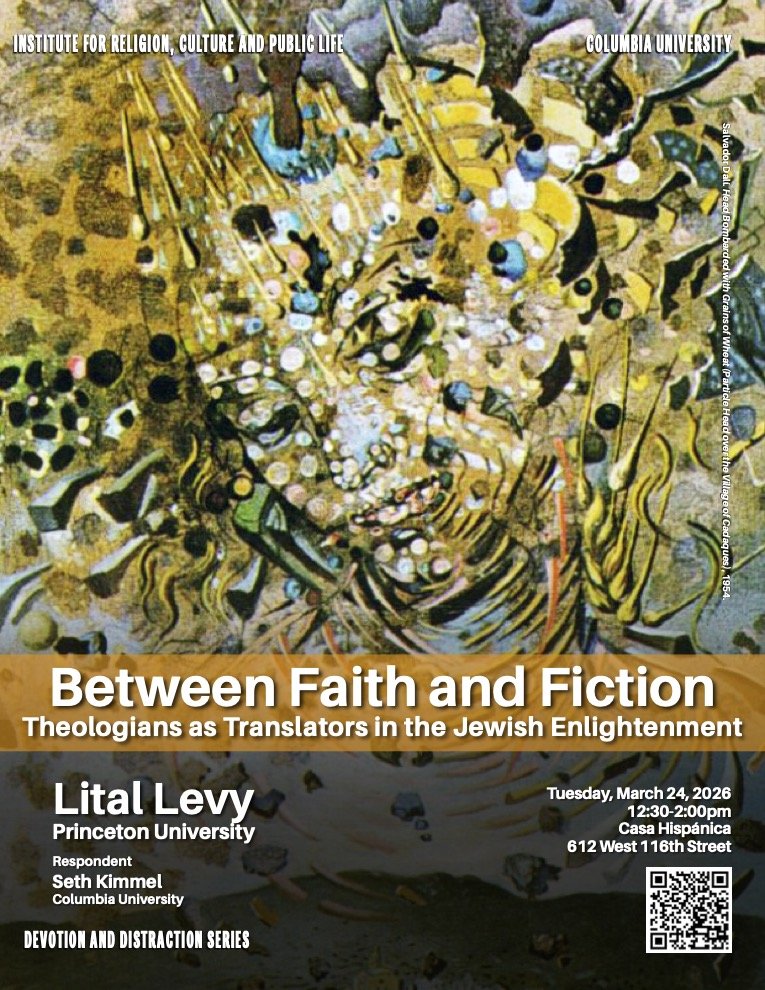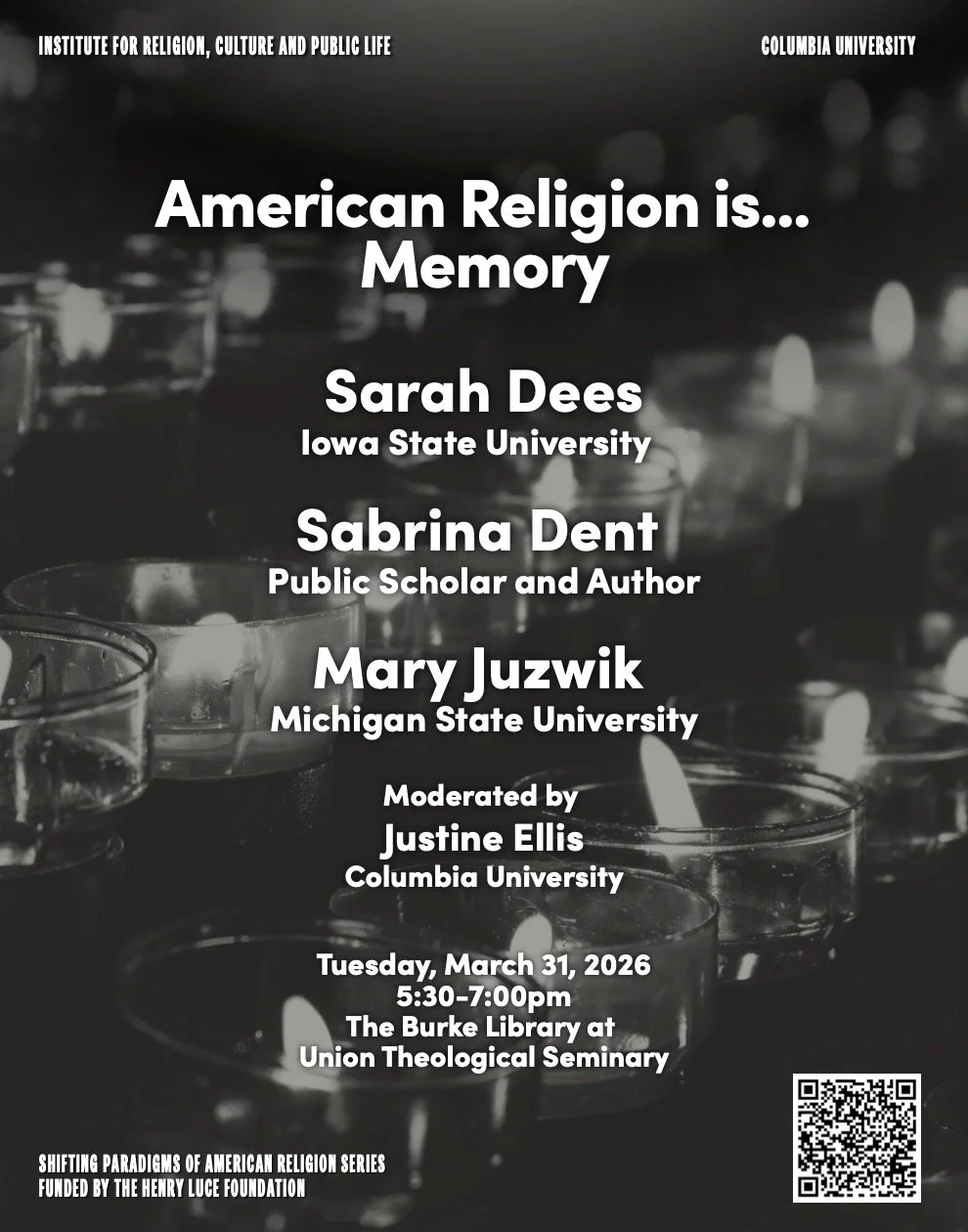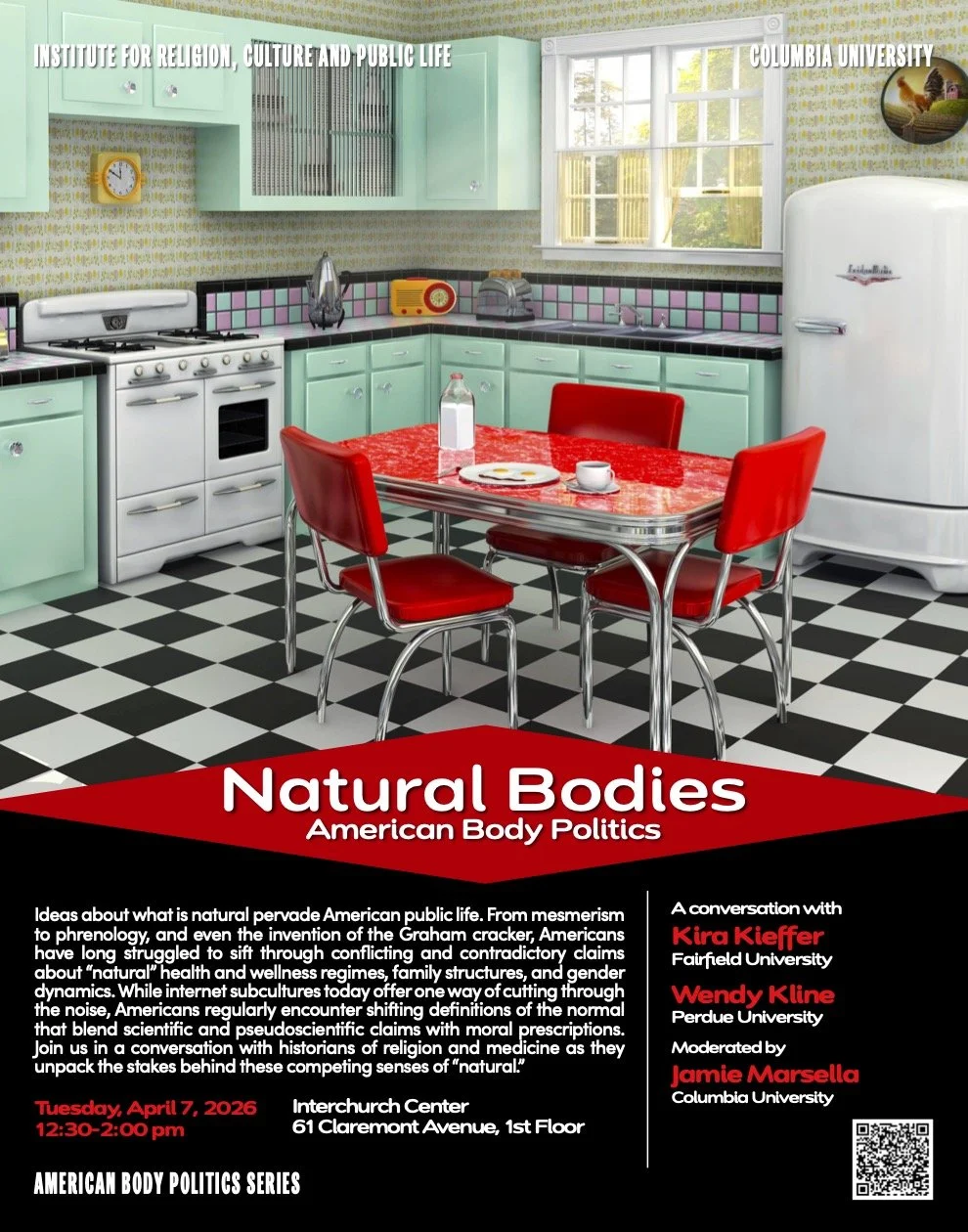Events
In a simple story that we now tell ourselves about secularization, the European Enlightenment plays a key role: It’s the period when scientific inquiry and rational thought became ascendent, while religious practice receded to a more limited private sphere, a shift that coincided with new paradigms of toleration and liberty. The truth is of course more complicated, as theologians from various religious communities reimagined both religious practice and belief in dialogue with the philosophical and political trends of the moment. Along with their neighbors from other religious communities, how did participants in the Jewish Enlightenment, or Haskalah, come to view the new distractions, technological transformations, and dream of universal knowledge that characterized modern life before the eighteenth and nineteenth centuries?
What imprint do we leave behind on physical and digital landscapes? From monuments to museums, and from rituals to remembrance, perspectives from the study of American religion can help us understand the narratives we tell ourselves about the present. Join IRCPL for a conversation about the public stakes of preservation and erasure in our current moment.
Ideas about what is natural pervade American public life. From mesmerism to phrenology, and even the invention of the Graham cracker, Americans have long struggled to sift through conflicting and contradictory claims about “natural” health and wellness regimes, family structures, and gender dynamics. While internet subcultures today offer one way of cutting through the noise, Americans regularly encounter shifting definitions of the normal that blend scientific and pseudoscientific claims with moral prescriptions. Join us in a conversation with historians of religion and medicine as they unpack the stakes behind these competing senses of “natural.”



